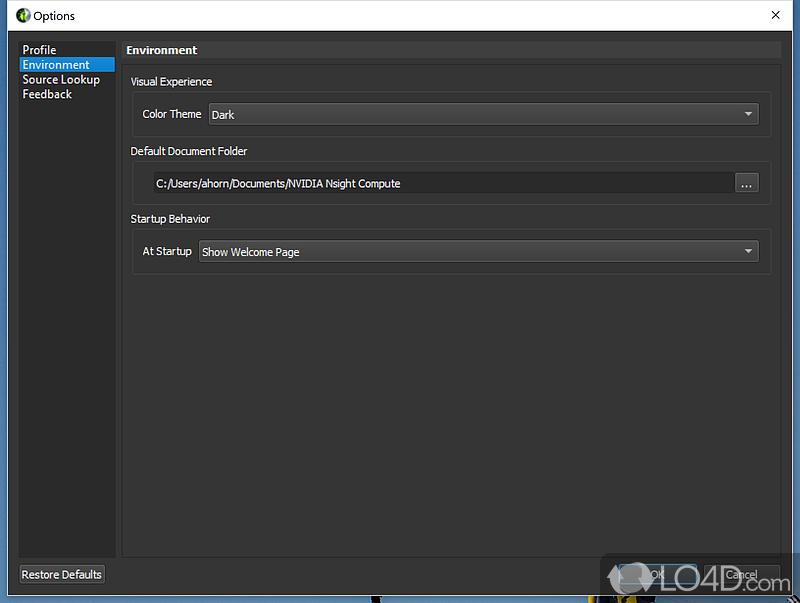

- UNINSTALL NVIDIA CUDA TOOLKIT HOW TO
- UNINSTALL NVIDIA CUDA TOOLKIT SERIAL
- UNINSTALL NVIDIA CUDA TOOLKIT UPDATE
- UNINSTALL NVIDIA CUDA TOOLKIT DOWNLOAD
L4T provides a Linux kernel and a sample root filesystem derived from Ubuntu 20.04. Minor versions of the following compilers listed: of GCC, ICC, NVHPC, and XLC, as host compilers for nvcc are supported. For platforms that ship a compiler version older than GCC 6 by default, linking to static cuBLAS and cuDNN using the default compiler is not supported. Newer GCC toolchains are available with the Red Hat Developer Toolset.

On distributions such as RHEL 7 or CentOS 7 that may use an older GCC toolchain by default, it is recommended to use a newer GCC toolchain with CUDA 11.0. Note that starting with CUDA 11.0, the minimum recommended GCC compiler is at least GCC 6 due to C++11 requirements in CUDA libraries, such as cuFFT and CUB. įor Ubuntu LTS on x86-64, the Server LTS kernel (for example, 4.15.x for 18.04) is supported in CUDA 12.0. Ī list of kernel versions including the release dates for SUSE Linux Enterprise Server (SLES) is available at. The following notes apply to the kernel versions supported by CUDA:įor specific kernel versions supported on Red Hat Enterprise Linux (RHEL), visit.
UNINSTALL NVIDIA CUDA TOOLKIT UPDATE
Native Linux Distribution Support in CUDA 12.1 Update 1 Please review the footnotes associated with the table. The following table lists the supported Linux distributions. The CUDA development environment relies on tight integration with the host development environment, including the host compiler and C runtime libraries, and is therefore only supported on distribution versions that have been qualified for this CUDA Toolkit release. To use NVIDIA CUDA on your system, you will need the following installed:Ī supported version of Linux with a gcc compiler and toolchain
UNINSTALL NVIDIA CUDA TOOLKIT HOW TO
This guide will show you how to install and check the correct operation of the CUDA development tools. The on-chip shared memory allows parallel tasks running on these cores to share data without sending it over the system memory bus. These cores have shared resources including a register file and a shared memory. This configuration also allows simultaneous computation on the CPU and GPU without contention for memory resources.ĬUDA-capable GPUs have hundreds of cores that can collectively run thousands of computing threads. The CPU and GPU are treated as separate devices that have their own memory spaces.

As such, CUDA can be incrementally applied to existing applications.
UNINSTALL NVIDIA CUDA TOOLKIT SERIAL
Serial portions of applications are run on the CPU, and parallel portions are offloaded to the GPU. Support heterogeneous computation where applications use both the CPU and GPU. With CUDA C/C++, programmers can focus on the task of parallelization of the algorithms rather than spending time on their implementation. Provide a small set of extensions to standard programming languages, like C, that enable a straightforward implementation of parallel algorithms. It enables dramatic increases in computing performance by harnessing the power of the graphics processing unit (GPU).ĬUDA was developed with several design goals in mind: Introduction ĬUDA ® is a parallel computing platform and programming model invented by NVIDIA ®. Choose the version that matches your GPU and operating system.The installation instructions for the CUDA Toolkit on Linux.
UNINSTALL NVIDIA CUDA TOOLKIT DOWNLOAD
Here are the steps to install CUDA Toolkit on Ubuntu: Step 1: Download CUDA Toolkitĭownload the CUDA Toolkit from the NVIDIA website. To fix this error, you can install the CUDA Toolkit, which includes all the necessary libraries and tools for running CUDA applications. If you are facing the error "Could not load dynamic library 'libcublas.so.10' dlerror: libcublas.so.10: cannot open shared object file: No such file or directory" while running Tensorflow, it means that Tensorflow is unable to find the required CUDA libraries. This library is usually included in the NVIDIA CUDA Toolkit, which is required for using GPUs with TensorFlow. This error message indicates that TensorFlow is unable to find the CUDA library 'libcublas.so.10', which is needed for GPU computations. The "Could not load dynamic library 'libcublas.so.10' dlerror: libcublas.so.10: cannot open shared object file: No such file or directory" error is a common issue that occurs when using TensorFlow with GPU support.


 0 kommentar(er)
0 kommentar(er)
